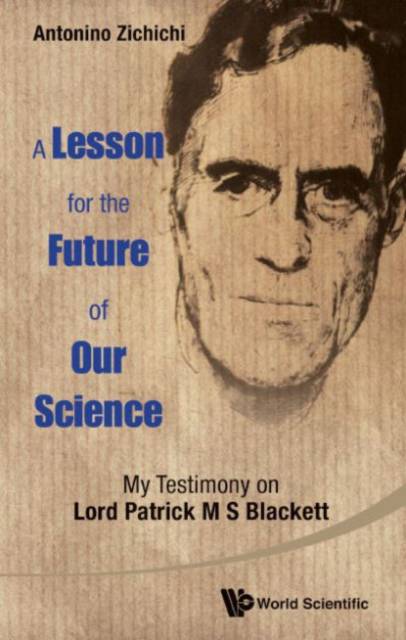
Door een staking bij bpost kan je online bestelling op dit moment iets langer onderweg zijn dan voorzien. Dringend iets nodig? Onze winkels ontvangen jou met open armen!
- Afhalen na 1 uur in een winkel met voorraad
- Gratis thuislevering in België vanaf € 30
- Ruim aanbod met 7 miljoen producten
Door een staking bij bpost kan je online bestelling op dit moment iets langer onderweg zijn dan voorzien. Dringend iets nodig? Onze winkels ontvangen jou met open armen!
- Afhalen na 1 uur in een winkel met voorraad
- Gratis thuislevering in België vanaf € 30
- Ruim aanbod met 7 miljoen producten
Zoeken
Lesson for the Future of Our Science, A: My Testimony on Lord Patrick M S Blackett
Antonino Zichichi
Paperback | Engels
€ 42,95
+ 85 punten
Uitvoering
Omschrijving
This unique volume contains a tribute to Lord Patrick M S Blackett through the testimony of Professor Antonino Zichichi, who was one of Blackett's pupils in the experiment at the Sphinx Observatory, Europe's highest lab (3580 meters a.s.l.), at Jungfraujoch. The book presents an overview of Blackett's most significant discoveries, such as the so called 'vacuum polarization' effect, the first example of 'virtual physics' and the 'strange particles', that opened a new horizon towards the existence of the subnuclear universe. After discussing the profound implications of Blackett's pioneering contributions to Subnuclear Physics, the book also recalls his deep interest in the promotion of scientific culture. Blackett was firmly convinced that physicists must be engaged directly to let the people outside our labs know what the role of science is in the progress of our civilisation. In particular, according to Blackett and his friend Bertrand Russell, the Manhattan Project was the example of how the new frontiers of science and technology would have been implemented in the future. In this respect, the role of dedicated institutions is discussed, as a new bridge between traditional university teaching and the big projects for the future of science and technology.
Specificaties
Betrokkenen
- Auteur(s):
- Uitgeverij:
Inhoud
- Aantal bladzijden:
- 280
- Taal:
- Engels
Eigenschappen
- Productcode (EAN):
- 9789814719414
- Verschijningsdatum:
- 28/04/2016
- Uitvoering:
- Paperback
- Formaat:
- Trade paperback (VS)
- Afmetingen:
- 165 mm x 246 mm
- Gewicht:
- 544 g

Alleen bij Standaard Boekhandel
+ 85 punten op je klantenkaart van Standaard Boekhandel
Beoordelingen
We publiceren alleen reviews die voldoen aan de voorwaarden voor reviews. Bekijk onze voorwaarden voor reviews.











